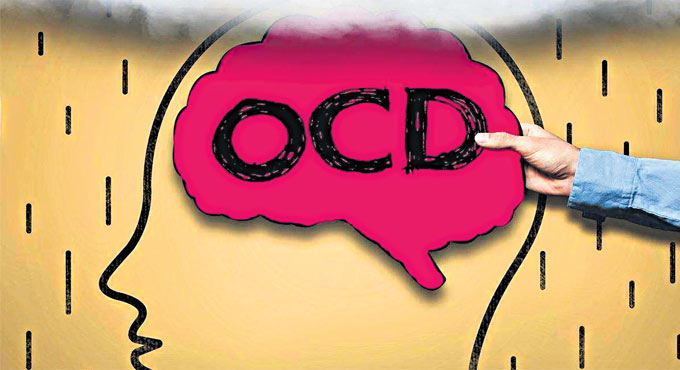Obsessive-compulsive disorder (OCD) is a serious mental health condition that affects millions of people around the world. It’s characterized by obsessive thoughts and rituals that can interfere with daily life and cause distress. While OCD can have a profound impact on someone’s life, it’s important to know that there is help available. In this blog post, we will explore some of the best ways to cure OCD, from cognitive-behavioral therapy to medications and more. We’ll also take a look at how to cope with symptoms in everyday life so you can live the life you want to live.
Contents
Understanding OCD
There are many different types of OCD, and the best way to cure it depends on the type that you have. Here are some of the most common types:
- Checking: People with this type of OCD feel the need to check things repeatedly, such as making sure the doors are locked or the stove is turned off.
- Contamination: People with this type of OCD are afraid of becoming contaminated by germs or other substances. They may compulsively wash their hands or avoid touching people or objects.
- Hoarding: People with this type of OCD hoard objects because they fear they will need them in the future. They may have difficulty throwing things away, even if they are useless.
- Intrusive Thoughts: People with this type of OCD have persistent, unwanted thoughts that cause distress. These thoughts may be about harm coming to oneself or others, sexual content, or religious themes.
- Perfectionism: People with this type of OCD strive for perfection in everything they do. They may have a hard time finishing tasks because they fear they will not be perfect.
Many different factors can contribute to the development of OCD. Some research suggests that OCD may be genetically inherited, as it tends to run in families. Environmental factors, such as exposure to traumatic or stressful events, can also play a role in causing OCD. Additionally, some studies have found a link between OCD and certain neurological imbalances or abnormalities.
How To Cure OCD?
OCD is a condition that affects people of all ages and backgrounds, however, it is treatable. Curing OCD is a process that usually involves a combination of cognitive behavioral therapy (CBT), medications, and lifestyle changes.
Although it may take time to find the right treatment for an individual, remission is possible with proper support and guidance from healthcare professionals. With the help of these treatments, individuals suffering from OCD can learn how to manage their condition, reduce their symptoms, and live a better life.
Traditional Methods To Cure OCD
Curing OCD is a process that involves developing new skills to manage the condition.
There are many traditional methods of treatment for OCD, such as psychotherapy, medication, and behavior therapy.
Psychotherapy
Psychotherapy is an important part of treating OCD. It involves talking to a therapist or counselor about the thoughts and feelings that cause obsessions, anxieties, and compulsions. The goal is to help people better understand their condition and develop new skills for managing it. Some of the most common forms of psychotherapy for OCD include cognitive-behavioral therapy (CBT), exposure and response prevention (ERP), and mindfulness-based cognitive therapy (MBCT).
Medication
Certain medications can also be used to help manage the symptoms of OCD. Commonly prescribed medications include selective serotonin reuptake inhibitors (SSRIs) and tricyclic antidepressants. These medications work by increasing levels of serotonin, a neurotransmitter that helps regulate moods, in the brain. However, it’s important to note that these medications don’t cure OCD but rather help reduce symptoms so people can better manage the condition.
Behavior Therapy
Behavior therapy is another form of treatment for OCD. This type of therapy focuses on changing certain behaviors associated with OCD. It’s based on the idea that people can learn to replace their unwanted thoughts and behaviors with more adaptive ones. Common techniques used in behavior therapy include exposure and response prevention (ERP) and habit reversal training (HRT).
Lifestyle Changes
Lifestyle changes can also play a role in helping to reduce the symptoms of OCD. These can include exercising regularly, getting enough sleep, eating healthy meals, avoiding stressful situations, practicing relaxation techniques such as yoga or meditation, and connecting with supportive family members and friends.
Newer Methods To Cure OCD
There are many newer methods of treatment for OCD that have been developed in recent years. These include:
Acceptance and Commitment Therapy (ACT)
Acceptance and Commitment Therapy (ACT) is a form of psychological intervention that helps people accept their thoughts and feelings without judgment. It encourages people to remain mindful of their thoughts and be more aware of the present moment. The goal of ACT is to help people find more meaning in life and engage in activities that are meaningful to them.
Dialectical Behavioral Therapy (DBT)
Dialectical Behavioral Therapy (DBT) focuses on helping people become more mindful of their thoughts, emotions, and behaviors. It also teaches them how to manage distressful situations effectively. DBT is particularly helpful for those with OCD because it helps them better manage their extreme emotions, such as anxiety and fear.
Mindfulness-Based Therapies
These therapies involve learning to pay attention to the present moment and accepting thoughts and feelings without judging them. They can help patients to better control their OCD symptoms. Mindfulness-based therapies involve meditation and other relaxation techniques to help people manage their symptoms.
Yoga
One of the most popular forms of therapy for OCD is yoga. Yoga can help reduce tension and stress, which are often associated with OCD. It also helps people to become more aware of their body and mind, so they can better manage their symptoms. There are many types of yoga, such as Hatha yoga and Kundalini yoga, that can be used to help treat OCD.
Nutrition and Supplements
Making dietary changes can also help manage the symptoms of OCD. Eating a healthy diet that is low in processed foods and high in fruits, vegetables, whole grains, lean proteins, and healthy fats can help reduce anxiety and stress levels. Taking certain supplements can also be beneficial for managing OCD symptoms. Commonly used supplements include omega-3 fatty acids, magnesium, zinc, vitamin B6, and probiotics.
These treatments have all been found to be effective in helping people with OCD manage their symptoms and live fulfilling lives. It is important to remember that everyone’s journey with OCD is different, so it may take some trial and error to find the right combination of treatments for you. If you or someone you know is struggling with OCD, reach out to a mental health professional for help.
Which Method Is The Best?

There is no one-size-fits-all answer to this question, as the best method of OCD treatment will vary depending on the individual and the severity of their condition. However, some common methods of treatment for OCD include medication, therapy, and self-help techniques.
There are some reasons for choosing a particular method of treatment. Some of the reasons are:
Effectiveness
One of the most important considerations when choosing a treatment for OCD is its effectiveness. Different treatments have different levels of success, so it is important to choose one that has been proven to be effective in treating OCD. There are many studies done on different treatments for OCD, so it is important to research which one has been proven to be the most effective.
Safety
Another factor that should be taken into account when choosing a treatment for OCD is safety. Some treatments may have risks or side effects associated with them, so it is important to make sure that the treatment you choose is safe and will not cause harm. Also, keep in mind that some treatments may not be suitable for everyone, so it is important to consult with a medical professional before starting any treatment.
Cost
The cost of treatments is another factor to consider when choosing the best method of OCD treatment. Some treatments may require medication or therapy sessions, which can be expensive. It’s important to consider the costs associated with each option and decide which one is right for you based on your budget.
Accessibility
The availability of treatment should also be taken into consideration. Not all treatments are available everywhere, so it may be necessary to look for alternative options if the desired treatment is not available locally. Also, the availability of mental health professionals and support groups may vary depending on where you live.
Comfort Level
Finally, it is important to consider how comfortable you feel with the chosen treatment. There are many different treatments available, and it is important to choose one that you feel comfortable with and that works for you.
Conclusion
OCD can be a debilitating condition and it is important to seek professional help if you believe that you may suffer from it. However, there are several ways in which you can begin to manage your OCD symptoms yourself. We hope that these tips have been useful in helping you understand the best methods for tackling OCD and how to take small steps toward improving your quality of life. Remember: the key is consistency, patience, and perseverance – one step at a time.
For more information and guidance, please contact MantraCare. OCD is a mental health disorder characterized by obsessions and compulsions. If you have any queries regarding Online OCD Counseling experienced therapists at MantraCare can help: Book a trial OCD therapy session


